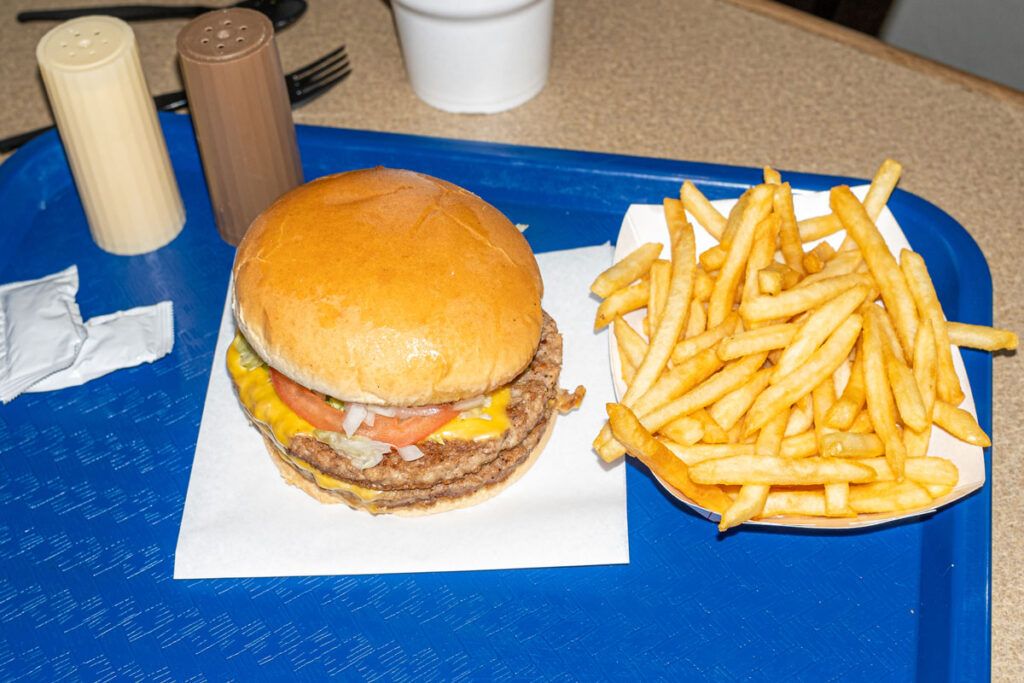A hiatal hernia is when a part of the stomach pushes up or protrudes through the breathing muscle (diaphragm) into the chest area.
The protrusion is the result of increased pressure inside the abdominal area, which squeezes part of the stomach. This leads to symptoms like acid reflux.
According to the National Institutes of Health (NIH), hiatal hernias are often associated with gastroesophageal reflux disease (GERD) and with symptoms like:
- heartburn
- chest pain
- difficulty swallowing
- belching
- a chronic cough
Your dietary choices may lower the discomfort and risk of complications of a hiatal hernia.
Foods and drinks to avoid, and why

Every individual is unique, and the factors that trigger hiatal hernia symptoms can vary from person to person. What may cause symptoms in one individual might not necessarily result in symptoms for another. To identify which foods you need to avoid, consider keeping a log of your eating choices and symptoms.
According to a 2023 review and 2021 systematic review, avoiding these foods may help you manage a hiatal hernia:
1. Citrus fruits and juices
Oranges, grapefruits, lemons, and limes may lead to reflux-like symptoms because they stimulate certain receptors in the lining of the esophagus. If this happens frequently, it may damage the tissue and further worsen the symptoms.
2. Acidic foods
Like citrus, other acidic foods like tomatoes, vinegar, or pickled foods may worsen symptoms of hiatal hernias.
3. Spicy foods
Hot peppers, chilies, and curry contain capsaicin, a natural compound from chili plants. Capsaicin may increase the pressure of the lower esophageal sphincter (LES) and trigger hiatus hernia symptoms in some people. The spicier the food, the worse the symptoms may be.
4. Fried and fatty foods
Foods that are high in fat and deep-fried can slow down digestion. This leads to increased pressure on the stomach and a higher likelihood of acid reflux. These foods also tend to be more challenging to digest, which can add to the bloating and discomfort of a hiatal hernia.
5. Coffee and tea
Some people experience worsened hiatal hernia or GERD symptoms after drinking tea or coffee. In particular, peppermint tea appears to be a common trigger. This may be linked to the caffeine content, pH level, or certain compounds found in these drinks.
6. Alcohol
Alcohol is a common cause of worsened hiatus hernia and GERD symptoms. This may be because it can relax the LES and allow stomach acid to travel back up the food pipe. It may also slow digestion and alter the stomach’s pH to worsen the symptoms further.
7. Carbonated beverages
The bubbles in sodas, sparkling water, and other carbonated beverages may lead to bloating. Drinking these beverages may also lead to increased pressure on the stomach and potentially trigger acid reflux and burping.
You may not always experience symptoms immediately after consuming these foods or beverages, but symptoms may appear hours later. Keeping a food log can help you recognize any patterns and identify triggers related to your hiatal hernia.
Even if you don’t experience symptoms, untreated hiatal hernias may sometimes lead to esophagitis, stomach ulcers, or stomach bleeding in some people.
To lower the risk of complications, avoid your individual trigger foods and follow lifestyle recommendations from a healthcare professional.
If you need help covering the cost of medications, the free Optum Perks Discount Card could help you save up to 80% on prescription drugs. Follow the links on drug names for savings on that medication, or search for a specific drug here.
